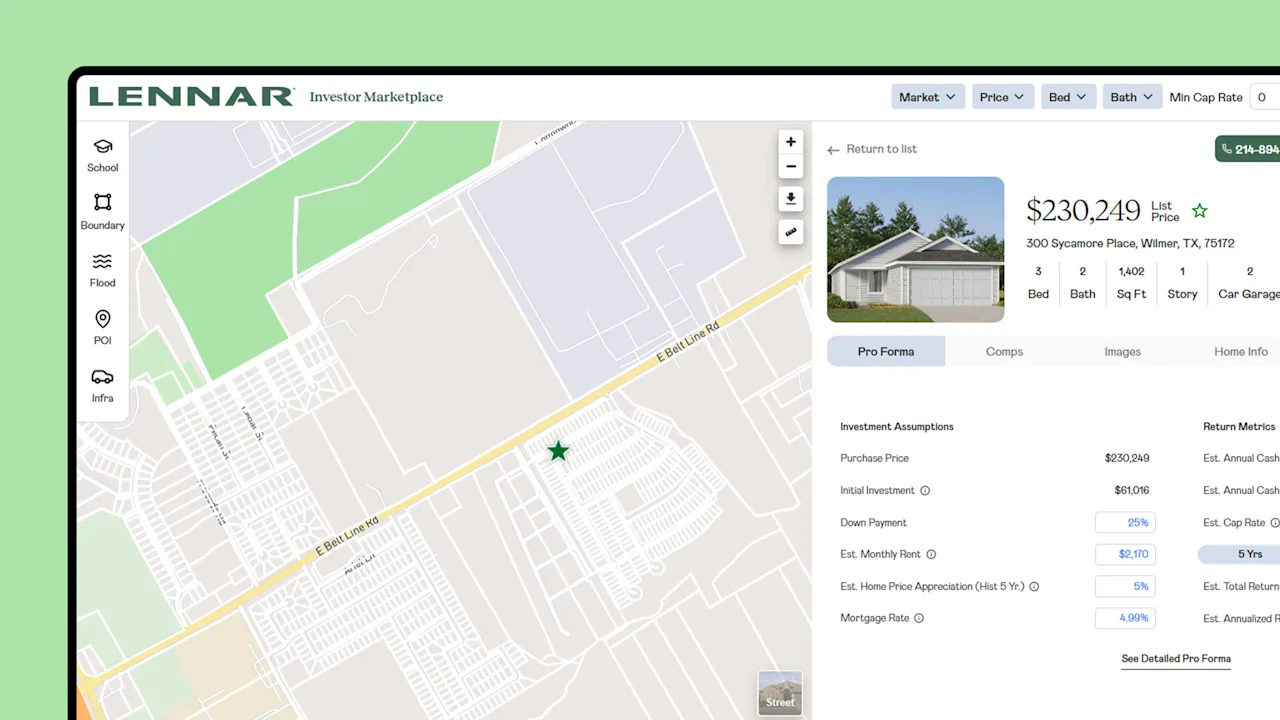Maximize Your Culinary Business Potential with a Shared Kitchen Setup

Key Takeaways

- Definition and Purpose: Shared kitchens are communal cooking spaces designed for aspiring chefs and food entrepreneurs to prepare food without the financial burden of traditional restaurant overheads.
- Cost-Effectiveness: Utilizing shared kitchens can reduce startup costs by up to 50%, allowing entrepreneurs to redirect funds towards essential areas like product development and marketing.
- Networking Opportunities: These kitchens foster collaboration among culinary entrepreneurs, providing access to mentorship and knowledge sharing, which can enhance business growth and innovation.
- Challenges to Consider: Managing scheduling conflicts, hygiene standards, storage limitations, and regulatory compliance are critical for the success of businesses operating in a shared kitchen environment.
- Market Growth: The popularity of shared kitchens is on the rise, with many opening recently, indicating a growing supportive environment for food startups.
- Supportive Resources: Shared kitchens often help aspiring owners with legal requirements like permits and licenses, simplifying the transition into the food business.
Imagine stepping into a vibrant space filled with the aroma of diverse cuisines and the sound of sizzling pans. Shared kitchens are revolutionizing the way we cook, eat, and connect. These communal culinary hubs offer aspiring chefs and food enthusiasts the chance to create in a fully-equipped environment without the hefty overhead of a traditional restaurant.
Whether you’re launching a food business or simply looking to explore new recipes, shared kitchens provide the perfect backdrop. They foster collaboration and innovation, allowing you to network with like-minded individuals while honing your culinary skills. Dive into the world of shared kitchens and discover how they can elevate your cooking experience and transform your passion into a thriving venture.
What Is a Shared Kitchen?

A shared kitchen is a communal space equipped for culinary use that supports small business startups in the food industry. These facilities offer aspiring chefs and entrepreneurs the opportunity to prepare and sell food without the overhead costs associated with traditional restaurants.
Shared kitchens provide the essential infrastructure needed for food preparation and often include baking tools, stovetops, refrigerators, and dishwashing stations. This setup allows you to focus on product development and innovation while minimizing expenses associated with leasing a commercial kitchen.
By utilizing a shared kitchen, you can create a solid business plan, access mentorship, and network with other food entrepreneurs. These environments foster collaboration, enabling you to share insights about marketing, branding, and customer acquisition strategies with like-minded individuals.
You can register your business as an LLC, sole proprietorship, or corporation, depending on your goals and needs. Many shared kitchens assist with the required licensing and permits, making it easier for you to navigate the legal landscape of the food industry.
Additionally, some shared kitchens offer resources for funding options, such as crowdfunding and angel investors. This support can enhance your growth strategy and assist in securing the necessary financing for your venture.
Benefits of Shared Kitchens

Shared kitchens offer tremendous advantages for food entrepreneurs looking to launch their small business ventures. The two primary benefits are cost-effectiveness and networking opportunities, both of which accelerate your business growth and streamline operations.
Cost-Effectiveness
Cost-effectiveness stands out as a primary benefit of shared kitchens. You save up to 50% in startup costs by utilizing fully-equipped communal kitchen spaces instead of building your own. Shared kitchens eliminate the financial burden of purchasing expensive equipment and securing large spaces. Instead, you can allocate your budget to other critical areas, such as product development, marketing, and team building. This initial savings strategy enhances your growth strategy and allows for flexibility in your business plan.
Networking Opportunities
Networking opportunities abound in shared kitchens. You work alongside fellow culinary entrepreneurs who can offer mentorship and collaboration. Engaging with like-minded individuals fosters innovation and encourages knowledge sharing in areas like branding, marketing, and customer acquisition. These interactions often lead to partnerships that enhance your competitive edge in the market. Additionally, you can access resources for legal advice, permits, and business registrations as shared kitchens often provide connections to industry professionals and business incubators. This community support strengthens your venture’s foundation and increases the chances of long-term success.
Challenges of Shared Kitchens

Shared kitchens present unique challenges that you must manage effectively to ensure your business thrives.
Scheduling Conflicts
Scheduling conflicts frequently arise with multiple businesses sharing the same kitchen space. Coordinating usage times is crucial for a smooth workflow. You can implement advanced booking systems and maintain open communication with fellow entrepreneurs to navigate these conflicts. Prioritize your peak hours and plan around others to maximize kitchen efficiency.
Hygiene and Cleanliness
Hygiene standards significantly impact shared kitchens. Users, including you, must follow strict cleaning protocols to maintain sanitary conditions. Regular health inspections and monitoring prevent foodborne illnesses while ensuring compliance with local regulations. Establish a cleaning schedule and designated responsibilities among all users to foster a culture of cleanliness.
Storage Limitations
Storage limitations pose logistical challenges within shared kitchens. Space for ingredients and equipment often falls short of individual business needs. To address this, consider utilizing vertical storage solutions and consolidating items to maximize available space. Organize shared storage areas efficiently, allowing for quick access to essential supplies while minimizing clutter and confusion.
Regulatory Hurdles
Navigating regulatory hurdles can be complex in shared kitchen environments. Complying with local health codes, permits, and licensing requirements is essential for legal operation. Familiarize yourself with the necessary regulations related to your business model, whether it’s a sole proprietorship or LLC. Seek legal advice or mentorship from seasoned entrepreneurs to ease the burden of compliance.
Kitchen Management
Effective kitchen management is vital for productivity and minimizes stress. You need to develop a clear management plan that outlines the usage rules, maintenance expectations, and emergency procedures. Communicate regularly with kitchen peers, share best practices, and adapt to each other’s work styles. Leveraging this collaborative approach can enhance your operational efficiency and strengthen community ties within the kitchen.
Popularity of Shared Kitchens

Shared kitchens have surged in popularity, fueled by multiple trends and demands within the food industry. A significant 50% of shared kitchens were launched within the last five years, with an additional 28% opening between five and nine years ago. This growth indicates a rapidly emerging market for food entrepreneurs.
Shared kitchens present opportunity for small businesses to save on startup costs, offering an affordable alternative to traditional restaurant spaces. You can utilize this communal environment for product development while focusing on your business model rather than heavy financial burdens.
Expansion plans are also a key focus for these kitchens, as 75% intend to open additional locations within the next 1-2 years. This expansion highlights the ambition to support culinary innovation and enhance market presence.
Furthermore, shared kitchens cater to the needs of early-growth businesses. Approximately 82% dedicate resources to assist aspiring entrepreneurs. Mentorship and networking opportunities thrive within these environments, allowing you to share insights on branding, marketing, and customer acquisition strategies.
On a practical level, shared kitchens assist in navigating the legal aspects of starting a business, including licenses and permits. Understanding the optimal legal structure for your venture, such as LLC or sole proprietorship, is crucial.
By capitalizing on the shared kitchen model, entrepreneurs can maximize their potential for innovation while minimizing risks associated with launching a new food business.
Conclusion

Shared kitchens are revolutionizing the culinary landscape by providing aspiring chefs and food enthusiasts with the tools they need to succeed. By offering a cost-effective way to launch food businesses they empower you to focus on what truly matters—your culinary creations.
The community aspect of shared kitchens fosters collaboration and innovation giving you access to valuable mentorship and networking opportunities. As this trend continues to grow you’ll find that these spaces not only enhance your cooking experience but also significantly increase your chances of long-term success in the competitive food industry.
Embrace the potential of shared kitchens and take the next step toward turning your culinary dreams into reality.
Frequently Asked Questions

What are shared kitchens?
Shared kitchens are communal cooking spaces designed for aspiring chefs and food enthusiasts to prepare food without the high costs of traditional restaurant setups. They provide essential kitchen equipment and resources, fostering collaboration and innovation among users.
How do shared kitchens benefit food entrepreneurs?
Shared kitchens significantly reduce startup costs by up to 50%. They provide infrastructure for food preparation, mentorship opportunities, and networking, allowing entrepreneurs to focus on product development and marketing instead of heavy financial burdens.
What resources do shared kitchens offer?
Shared kitchens offer a fully-equipped environment, including baking tools, stovetops, refrigeration, and dishwashing stations. They also provide assistance with legal aspects like licensing, funding options, and resources for marketing and branding strategies.
Are shared kitchens cost-effective?
Yes, shared kitchens are a cost-effective alternative to traditional restaurant spaces. They allow food entrepreneurs to save significant startup costs, which can then be reinvested into product development, marketing, and other essential business areas.
How popular are shared kitchens?
The popularity of shared kitchens has surged, with 50% launched in the last five years. This growth highlights a rapidly emerging market catering to food entrepreneurs seeking affordable and communal cooking spaces.
What opportunities do shared kitchens provide?
Shared kitchens encourage networking and collaboration among culinary entrepreneurs. They create a supportive community that fosters mentorship and innovation, enhancing the chances of long-term success in the competitive food industry.
Do shared kitchens assist with legal matters?
Yes, many shared kitchens help entrepreneurs navigate legal aspects of starting a food business, including understanding the best legal structure, obtaining necessary permits, and complying with local health regulations.
How do shared kitchens foster innovation?
Shared kitchens promote collaboration among chefs, allowing them to exchange ideas, share resources, and develop new recipes or food concepts. This environment of creativity leads to innovative culinary endeavors and partnerships.
Image Via Envato
This article, "Maximize Your Culinary Business Potential with a Shared Kitchen Setup" was first published on Small Business Trends
What's Your Reaction?
 Like
0
Like
0
 Dislike
0
Dislike
0
 Love
0
Love
0
 Funny
0
Funny
0
 Angry
0
Angry
0
 Sad
0
Sad
0
 Wow
0
Wow
0




























































































